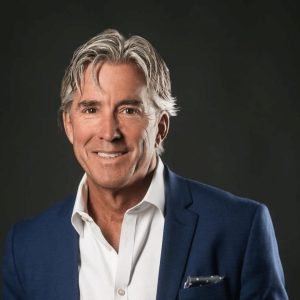When you’re tasked with selecting and booking speakers, you’ll quickly discover that professional ethics goes far beyond basic contract negotiations. You’ll need to navigate complex decisions about speaker authenticity, cultural sensitivity, and fair pricing practices. Whether you’re organizing a leadership summit or managing a keynote series, your choices directly impact both audience experience and industry integrity. The stakes are high, and the path to ethical excellence requires careful consideration of several key principles.
Core Ethical Principles in the Speaking Industry
When selecting and booking professional speakers, adhering to core ethical principles isn’t just good practice – it’s essential for maintaining industry integrity. These principles guarantee that both speakers and audiences receive fair, honest, and professional treatment throughout the engagement process.
Key ethical considerations you’ll need to prioritize:
- Verify speakers’ credentials and ascertain they’re accurately representing their expertise and qualifications
- Protect client confidentiality and maintain trust between all parties involved
- Enforce clear codes of conduct that outline expectations and consequences
- Implement post-event evaluations to gather honest feedback and assess success
Remember that ethical speakers must properly attribute others’ material, avoid manipulative tactics, and maintain professional courtesy. Engaging speakers who demonstrate respect for diverse perspectives helps ensure meaningful dialogue between presenters and audience members. Selecting speakers with industry expertise allows organizations to deliver valuable, cutting-edge insights to their audience. You’ll also need to deliberate ethical sourcing practices and ensure compliance with intellectual property rights and employment laws.
Transparency and Fair Pricing Practices
Clear pricing and transparent business practices serve as cornerstones of ethical speaker booking. You’ll need to establish clear communication about rates, expenses, and expectations from the initial contact. When working with Corporate Speaker Agency (CSA) or any reputable bureau, guarantee all financial arrangements are documented in formal agreements. With premier global reach, CSA’s extensive network ensures access to diverse talent across multiple markets and industries.
Conducting thorough audience feedback surveys helps determine appropriate speaker compensation levels based on event objectives and attendee expectations. Always provide speakers with detailed compensation packages, including travel and accommodation expenses. Draft comprehensive speaker agreements that outline terms, dates, and cancellation policies. Maintain standardized compensation practices to avoid unfair treatment or bias. Consider local talent to optimize costs while maintaining quality.
Remember that transparency builds trust and professionalism in the speaking industry. Don’t rely on “exposure” as compensation – professional speakers deserve fair payment for their expertise and time. Legal review of agreements helps prevent misunderstandings and protects all parties involved. Additionally, it’s crucial to discuss recording rights for speakers in the contract to ensure their intellectual property is protected. By clearly outlining how recordings will be used, distributed, and monetized, speakers can maintain control over their content and its representation. This proactive approach fosters a collaborative atmosphere where both the speaker and the organizing party can thrive while respecting each other’s contributions and rights.
Ensuring Speaker-Audience Cultural Alignment
Cultural alignment between speakers and audiences forms the foundation of successful speaking engagements. When you’re selecting keynote speakers, it’s pivotal to guarantee they can connect with your audience’s diverse cultural perspectives and backgrounds. Your speaker must demonstrate cultural sensitivity while delivering their message effectively across different demographics. Understanding and respecting global DEI expertise developed through leading large-scale international initiatives.
To achieve ideal cultural alignment, consider these essential factors:
- Conduct thorough audience research to understand their cultural composition and expectations
- Select speakers who can customize their content to address specific cultural nuances
- Verify the speaker’s track record of engaging with multicultural audiences
- Ensure clear communication through appropriate language choice and storytelling techniques
Managing Conflicts of Interest and Speaker Authenticity
Managing conflicts of interest and ensuring speaker authenticity requires an all-encompassing ethical framework that protects both your organization and audience. You’ll need to implement rigorous evaluation processes and clear contractual guidelines to maintain the highest standards of professional integrity.
To effectively manage these pivotal aspects, focus on these essential practices:
- Require speakers to disclose any potential conflicts, including financial ties to competitors or relevant organizations
- Conduct thorough background checks and review past speaking engagements to verify credentials and authenticity claims
- Use structured evaluation forms and feedback systems to assess speaker performance and audience impact
- Implement thorough contracts with specific clauses addressing conduct requirements and conflict disclosure obligations
Drawing from the expertise of academic institutions and industry leaders can help establish a solid foundation for fostering innovation culture throughout your organization’s speaker program. Understanding a speaker’s entertainment industry experience, like Ashlee Braxton’s decade-long career managing various aspects of production and performance, can provide valuable insights into their credibility and expertise.
Leadership Summit Keynote Series
When planning a Leadership Summit Keynote Series, you’ll need to curate a diverse lineup of speakers who can deliver transformative insights across multiple leadership dimensions. CSA’s roster includes proven business leaders, motivational experts, and industry innovators who can address essential topics like strategic thinking, team empowerment, and organizational change. With a proven track record of delivering over 250 keynote presentations across multigenerational workplaces, speakers like Will Baggett demonstrate the caliber of talent available. You’ll want to balance your keynote series with speakers who bring different perspectives and complementary expertise. Consider pairing a technology leader with a team-building expert, or a corporate strategist with a motivational speaker. This combination guarantees your audience receives both practical leadership tools and inspirational messages. Remember to verify each speaker’s credentials and past performance records through CSA’s rigorous screening process to maintain the summit’s professional standards and deliver maximum value to your attendees.
Expert Speaker Portfolio Management
A well-curated speaker portfolio forms the foundation of any successful speakers bureau. When managing your expert speaker roster, you’ll need to regularly evaluate each presenter’s performance, audience feedback, and market relevance. Start by categorizing speakers based on their expertise, from business leadership to technology innovation.
You’ll want to maintain diversity in your portfolio, ensuring you’ve got speakers who can address various industries, topics, and audience types. Keep detailed records of each speaker’s fees, availability, and special requirements. It’s vital to verify credentials, update biographies, and track speaking engagements to maintain quality control.
Don’t forget to regularly add emerging voices while retiring outdated content or underperforming speakers. Your portfolio should reflect current market demands and anticipate future trends in corporate speaking.
Final thoughts
You’ll find that maintaining high ethical standards in speaker selection and booking requires constant vigilance and commitment. When you’re transparent with pricing, verify credentials thoroughly, and prioritize cultural alignment, you’ll create more impactful events. Don’t forget to manage conflicts of interest and maintain extensive feedback systems. Your dedication to these principles will guarantee authentic, transformative speaking experiences that serve both speakers and audiences well.
Corporate Speaker Agency (CSA) is a premier international speaker bureau with offices in the UK and Las Vegas, connecting organizations with world-class keynote speakers and talent since 2015. Our team of seasoned event professionals brings over two decades of industry experience to curate exceptional speaking engagements for Fortune 500 companies, government agencies, and educational institutions worldwide.
As pioneers in conference speaker sourcing across the USA and UK, we represent an elite roster of industry experts spanning business, technology, innovation, leadership, and entertainment. Through CSA and our sister company Corporate Entertainment Agency, we provide comprehensive talent solutions including keynote speakers, motivational experts, entertainers, and event facilitators.
Our commitment to excellence and deep understanding of client needs has established us as a trusted partner in creating impactful corporate events, from high-stakes conferences to intimate team-building workshops. With access to thousands of distinguished speakers and entertainers, we pride ourselves on delivering precisely matched talent for any occasion and budget.



















